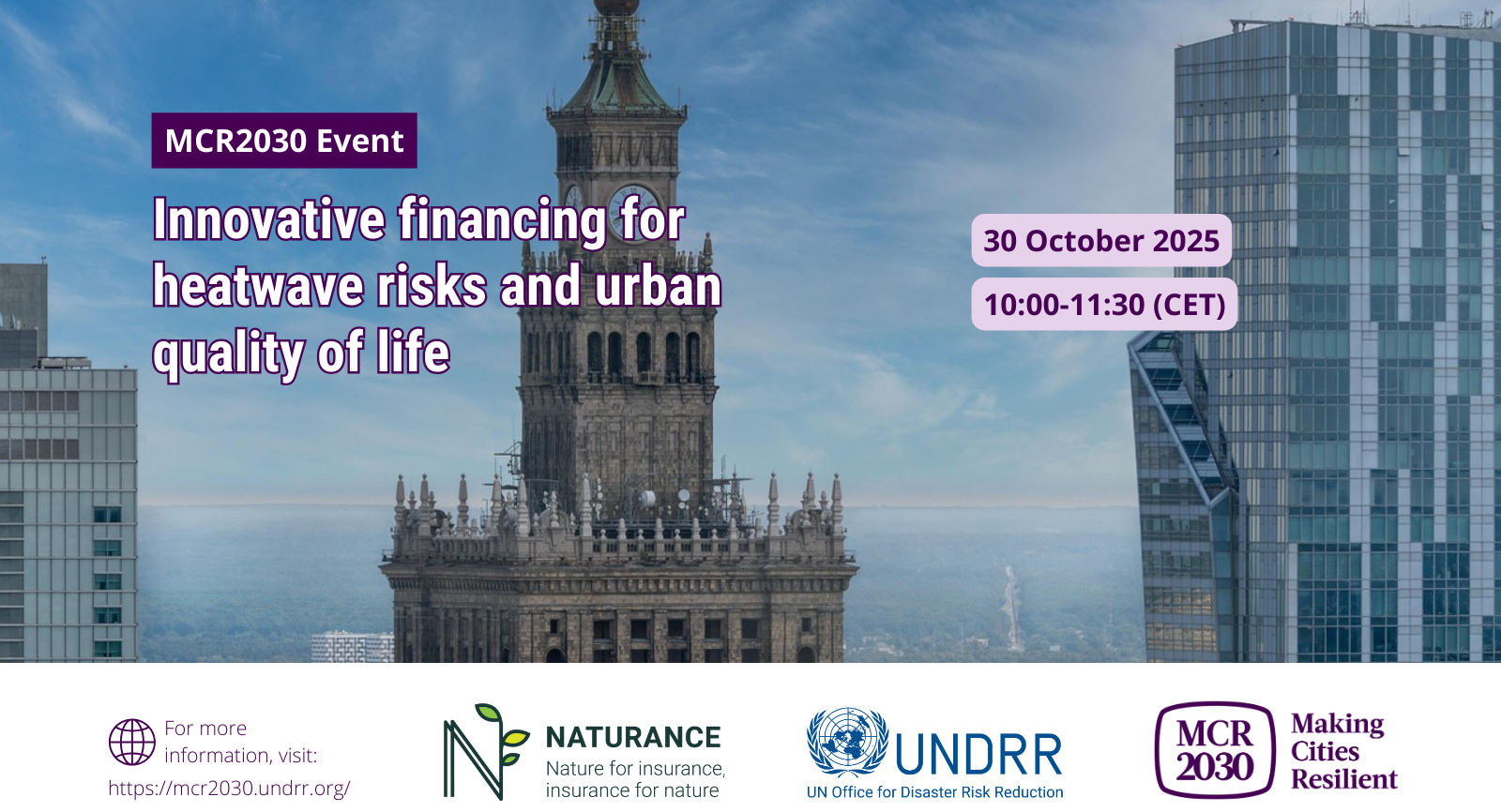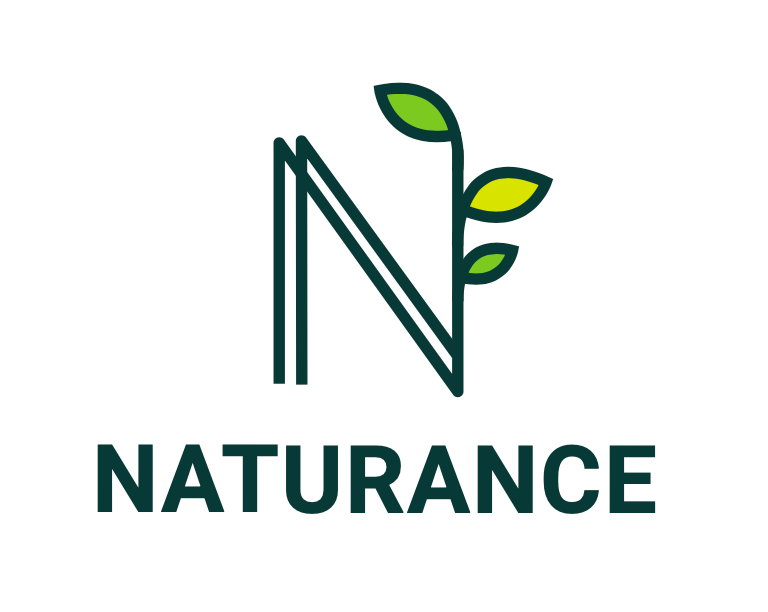
INSIDERS | Innovative financing for heatwave risks and urban quality of life
Urban heatwaves are among the most severe and growing climate risks in Europe and beyond, yet dedicated financing for preparedness and response remains limited. This global webinar, part of an online seminar series on innovative approaches to climate and disaster risk financing, was co-hosted by MCR2030 and the NATURANCE project. It explored innovative financing solutions – from parametric insurance to trigger-based schemes – aimed at strengthening urban resilience, supporting vulnerable groups, and improving quality of life in cities.

About
The webinar featured a distinguished group of speakers who provided insights from multiple perspectives. Dr. Paolo Garonna, Professor of Political Economy at LUISS Guido Carli University of Rome, introduced MCR2030’s latest knowledge product, “Flames of Change II: Urban Action on Extreme Heat Across Europe and Central Asia“, and presented the case of Rome along with key recommendations from the report.
Neil Gunn, Head of Flood and Water Management Research at Willis Research Network, shared outcomes from the NATURANCE Innovation Lab, highlighting lessons learned from trigger-based financing for urban heatwaves in London, including the role of parametric insurance, the use of granular data, and the integration of nature-based solutions.
Experts from Global Parametrics, Jamie Pollard and Heather Martin, discussed innovative financial tools to address heat risks, including an equity-focused product developed for three cities in India with the Mahila Housing Trust, aimed at supporting women affected by heatwave events.
Finally, representatives from the City of Wroclaw, Poland, Ms. Dagmara Rydzewska and Ms. Małgorzata Bartyna-Zielińska, provided practical examples of implementing nature-based solutions and strategies to enhance urban resilience.
The session concluded with a Q&A, offering participants the opportunity to engage directly with the experts, discuss practical solutions, and explore how innovative financing mechanisms could protect vulnerable populations, enhance urban quality of life, and support climate-resilient cities.
MCR2030 is a cross-stakeholder initiative led by the UN Office for Disaster Risk Reduction (UNDRR) to help cities become more inclusive, safe, sustainable, and resilient by 2030. The initiative provides cities with a three-stage resilience roadmap, technical expertise, peer-to-peer learning networks, and access to knowledge and tools to assess and reduce their risk and build resilience to shocks and stresses, like those from climate change.

